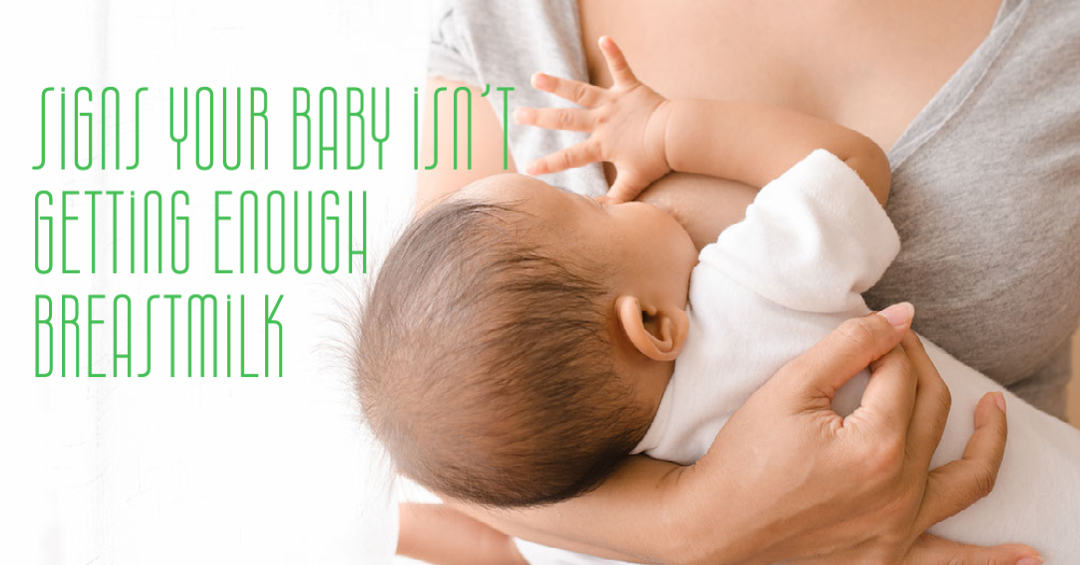Signs Baby Is Not Getting Enough Breastmilk
When breastfeeding, it is hard to determine the exact amount of milk your little one is receiving. A satisfied and growing baby can be seen in diapers, weight gain, and behavior. If your infant is not urinating or excreting enough, or if he is not gaining weight, she is not acquiring enough nourishment, and you will need to provide supplements. However, the behavior of your little one is hard to measure. Here are the common signs that your baby isn’t getting enough milk.
Not Enough Wet And Dirty Diapers

For newborns, most doctors recommend counting the number of dirty and wet diapers per day to determine if your child is getting enough milk.
- Parents can expect one wet diaper on the first day, increasing to more than six by the fourth day. To know how it feels to have enough wet diapers, add three tablespoons (45mL) of water into a clean diaper. Your baby’s urine should be mild-smelling and pale.
- Expect about 3 to 4 dirty diapers per day by the fourth day. The Baby’s stools should be yellow and loose.
Your Baby Not Gaining Weight
It is normal for babies to have a 5-7% weight loss during the first three to four days after birth. They should regain weight within ten to fourteen days. Around three to four weeks, your baby should have gained 4 to 7 ounces. After this, it is normal to gain 1 to 2 pounds per month. If your child is not gaining weight quickly enough, consult your health provider.
Your Breasts Are Still Firm After Feeding
The texture of your breasts can reflect whether your baby is properly draining breast milk. Typically, breasts are softened after a feeding. If your breasts are still firm after a nursing session, it is a sign that your baby is not getting enough milk. Gently massage your breasts before and after nursing to know what is normal for you.
You Experience Breast Engorgement
Hard and painful breasts may prevent your baby from getting milk correctly, discouraging you from having good nursing sessions. Severe engorgement can signify that your breasts are not being drained properly after a feeding. This is considered a normal part of nursing, but if the pain becomes extreme and persistent, seek help from a lactation consultant.
You may need to take milk manually or with a manual breast pump or an electric breast pump to relieve engorgement. Severe and unrelieved engorgement may result in a lower milk supply.
Very Long Or Short Nursing Sessions

This occurs when you cannot put your baby down even after a long nursing session. You may think that she is already asleep, and when you try to put her down 20 minutes later, she will start to cry. This experience can be tough, but it is often a sign that your baby is not getting enough milk due to low milk production or ineffective suckling.
Breastfeeding sessions that are shorter than ten minutes are also an indication that the baby cannot get enough milk. Consult your pediatrician right away and have her weight checked if your baby seems hungry after most feedings.
Severe Pain Interferes Nursing Sessions
When your baby is not latching on correctly, you may experience severe nipple pain. Make sure that your child has a deep latch. If your baby is making clicking noises or has dimples on her cheeks while breastfeeding, it is a sign that she is not latched on properly. You can also try different positions to prevent further problems.
If there is a significant cracking of the nipples, nursing can be too painful. In this case, consult a lactation specialist or your physician immediately to have your nipple and breast checked. She will check for an infection such as mastitis and will discuss with you how to solve these issues. You may need to start a nursing session on the side that is not too painful or use an electric breast pump.
Baby Sleeps Long After Feedings

In some cases, the baby sleeps longer after a feeding, which may be a sign that she is not getting enough milk. Some babies prefer to “shut down” or sleep rather than cry if they do not have enough food. If your child is breastfed and sleeps for four hours without waking during the night, her consumption is not quite adequate.
[ Read: What To Do If Your Baby Falls Asleep While Breastfeeding? ]
You Don’t Notice Let-Down Reflex
The letdown is the release of milk from your breasts. Letdown reflex occurs when a baby’s sucking stimulates nerves in the breasts. It signals the release of oxytocin, a hormone that triggers tiny muscles around milk-producing cells to contract and squeeze milk into ducts. This usually takes a few seconds to a few minutes.
Letdown reflex makes sure that your baby is getting enough milk. Most moms describe it as a tingly or pins and needles sensation. This feeling is caused by milk going through the ducts of the nipples.
How Will A Low Milk Supply Affect My Baby?
Breastfeeding is important to keep your baby healthy. It carries all the essential nutrients in the right proportions. Breast milk helps protect your child against sickness, allergies, diseases, and infections. It is advised that babies be breastfed for the first six months. It is encouraged to continue breastfeeding until at least one year or longer.
If your baby is not getting enough breast milk due to low supply, she may be diagnosed with failure to gain weight. It is important to observe your baby’s growth chart as low breast milk can put your little one at a high risk of weak immune system, poor memory, malnutrition, and other health problems.
While there are many breastfeeding techniques that you can do to increase your milk supply, it is best to consult your baby’s doctor if she is losing weight or not gaining weight at all.


